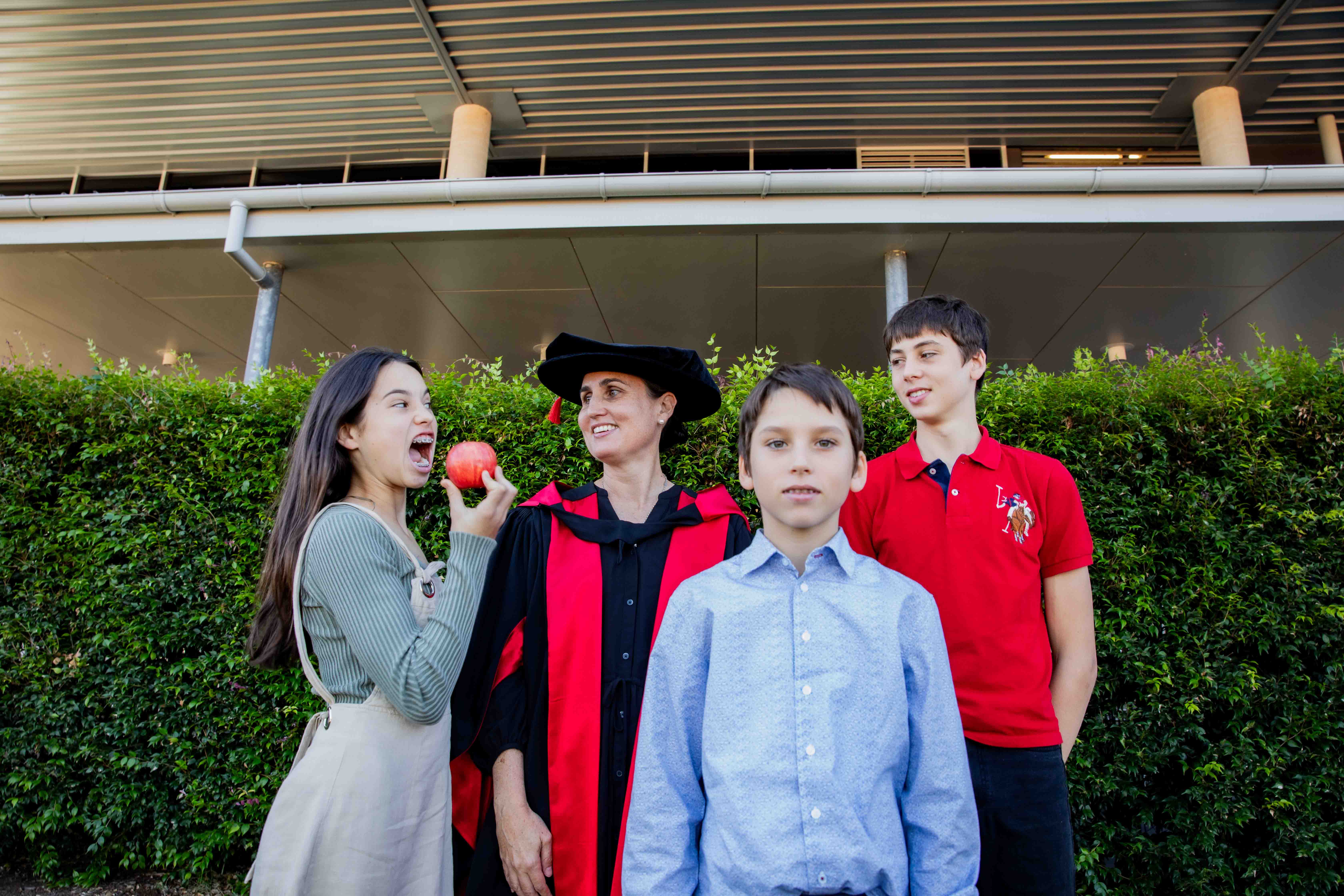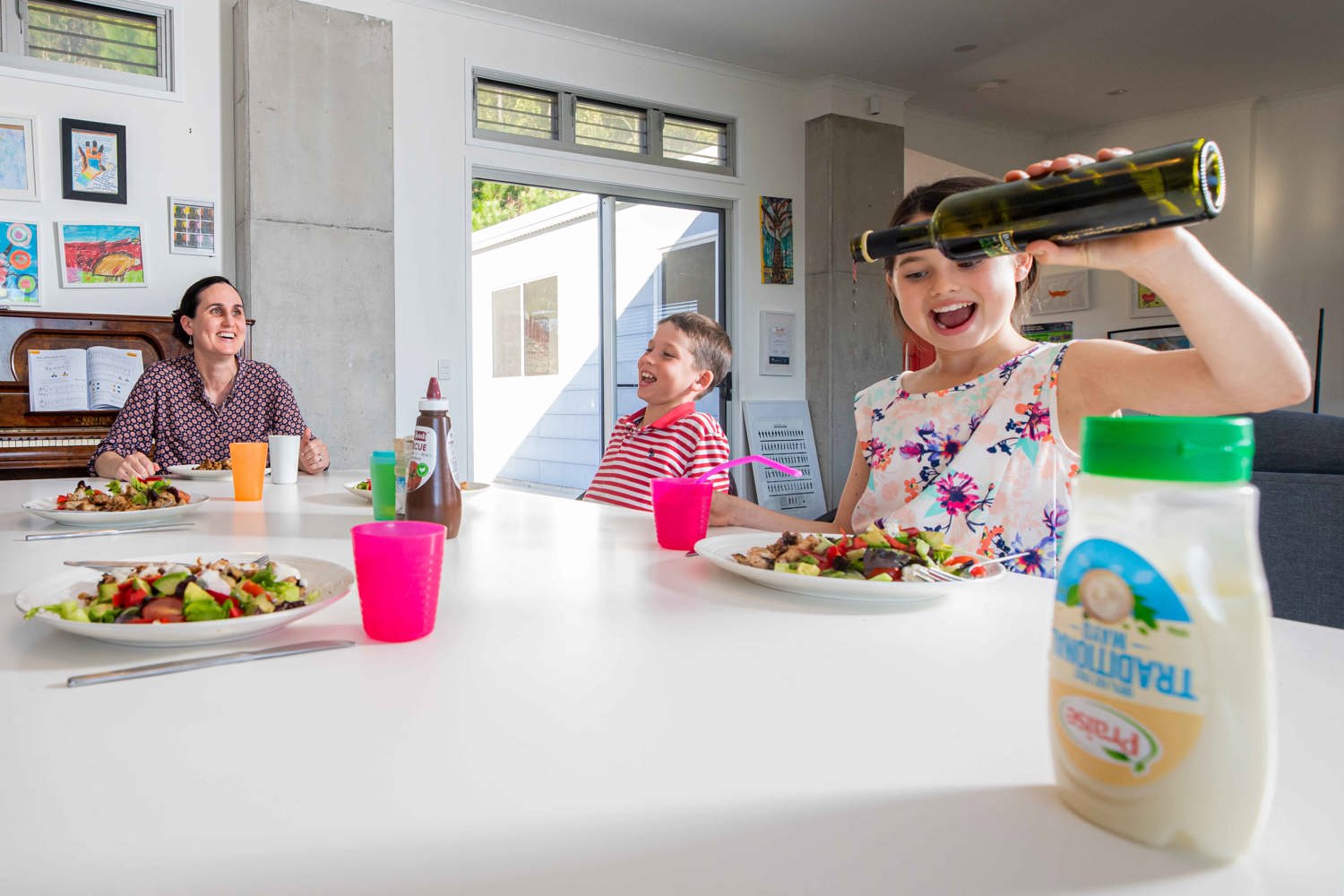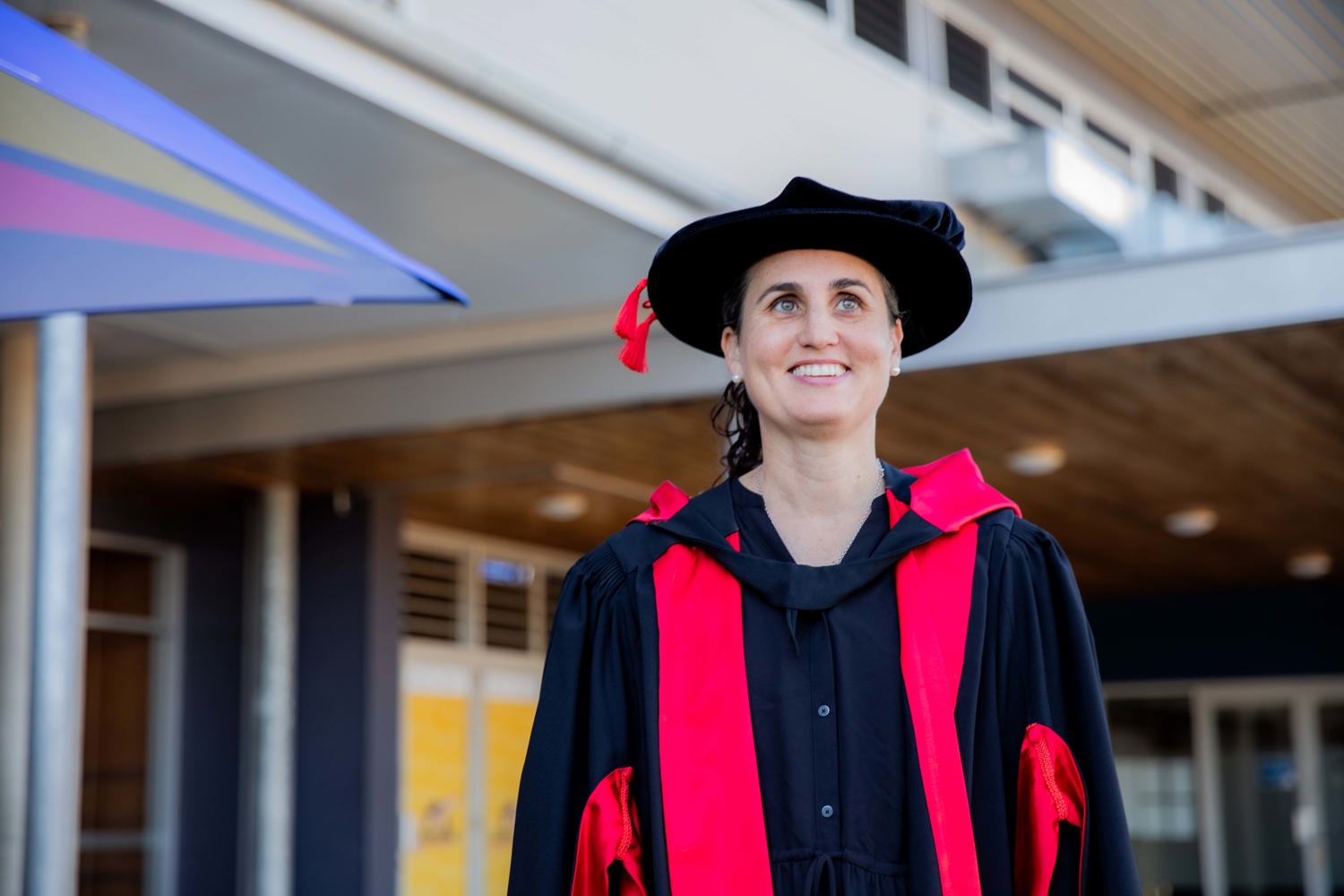Five years of UniSC-led research into the pesky problem of picky eating by children suggests that therapists should focus more on empowering parents to ease family angst at the dinner table.
The collaborative research led by Dr Laine Chilman of the University of the Sunshine Coast also highlighted the effectiveness of an online coaching intervention for parents to improve children’s mealtime behaviours.
Dr Chilman, an occupational therapy academic who graduated this month with her PhD, said the findings were novel because previous research focused on how to fix picky eating from the perspective of the child rather than the parent.

Bachelor of Nutrition
Learn about the fascinating new science of nutrition, food and healthy eating from registered nutritionists and accredited practising dietitians in our specialised teaching kitchen.
“Picky eating is a common problem for many young children, potentially affecting their nutritional intake with consequences into adulthood, but the impacts also extend to the family unit,” said Dr Chilman, a mother of three children aged under 15.
“With this strain on family relationships at mealtimes, parents may inadvertently reinforce the problem through their behaviours, such as pressuring the child to eat.
“We worked directly with a sample group of Queensland parents, using a structured online program called Occupational Performance Coaching (OPC).
“It is a goal-oriented approach that combines education and support for parents, positioning them as the agents of knowledge and change.”
'We sought to better understand the parent experience and the factors that may influence them to change behaviours' - Laine Chilman
The trial of an online intervention for parents emerged from the findings of four previous internationally published studies based on Dr Chilman's doctoral research, and co-authored with colleagues from UniSC, the University of South Australia and The University of Queensland.
“We identified that parents perceived health professionals as minimising or undervaluing their concerns around picky eating, so we sought to better understand the parent experience and the factors that may influence them to change behaviours,” she said.
“With the evidence also showing parents’ inventiveness when tackling the issue, we adapted the online program to these circumstances.
“The results were encouraging, with improvements in both children’s food intake and parental satisfaction. Parents also appreciated its flexibility and accessibility.”
Dr Chilman, whose research was supervised principally by UniSC Senior Lecturer in Occupational Therapy Dr Michele Verdonck, officially graduated with her PhD at a UniSC ceremony on 11 April.
The most recent paper was also co-authored by Professor Pamela Meredith, Dr Ann Kennedy-Behr, Associate Professor Thuy Frakking, Dr Libby Swanepoel and Nicole Southon.
An event for health clinicians will be held at the UniSC Innovation Centre on 10 May to discuss the OPC intervention with its creator, Associate Professor Fiona Graham from the University of Otago. Details at this link.
Links to Dr Chilman’s published papers:
Australian Occupational Therapy Journal March 2024
Appetite journal November 2023
Australian Occupational Therapy Journal May 2023
International Journal of Environmental Research and Public Health 2021

Bachelor of Occupational Therapy (Honours)
Study occupational therapy and get the hands-on experience you need to help people break down barriers and overcome limitations caused by injury, illness, ageing and more. In UniSC’s Bachelor of Occupational Therapy (Honours) you’ll combine theory with 1000 hours of practical work to get you job-ready.
Media enquiries: Please contact the Media Team media@usc.edu.au



